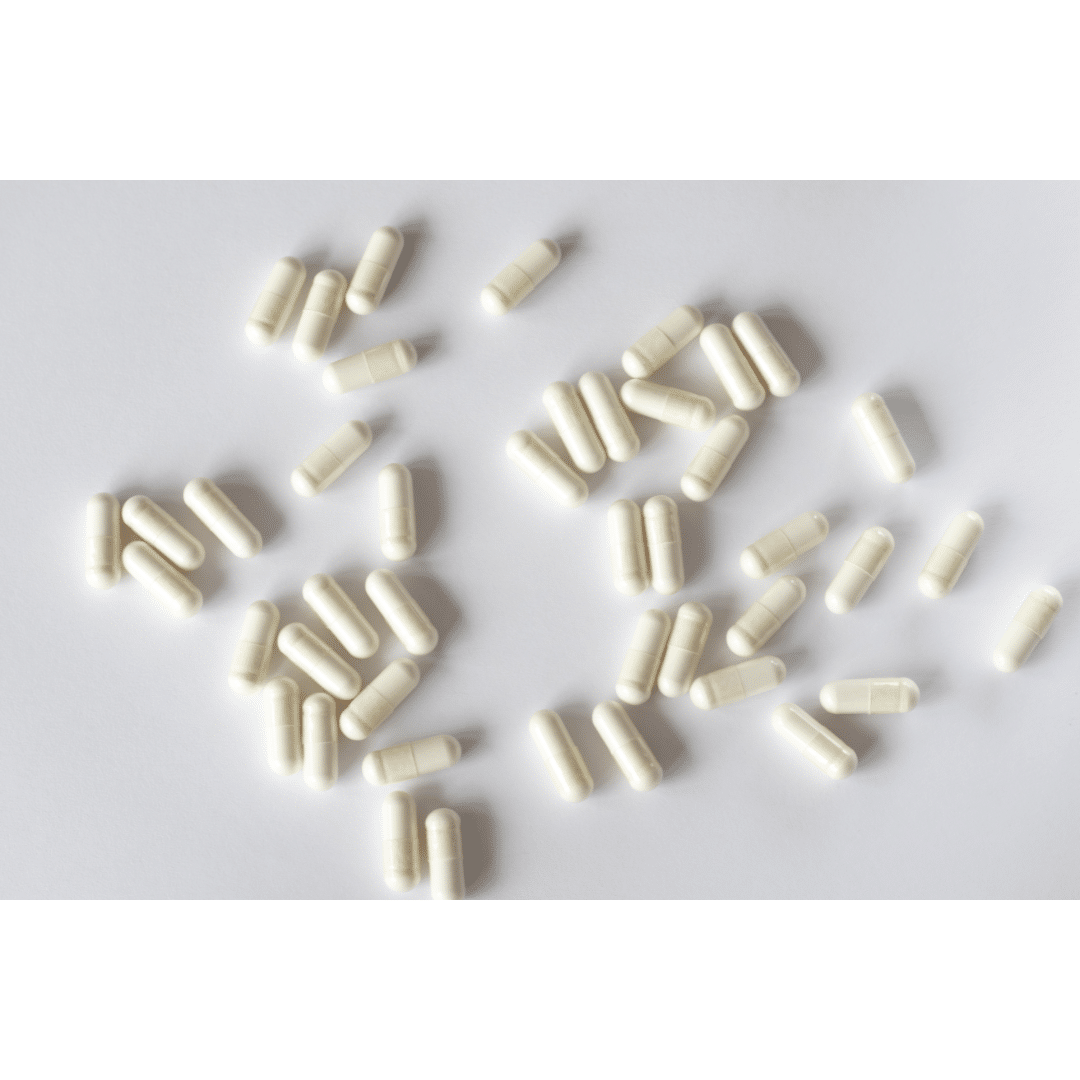What are the best digestive enzymes for SIBO?
- SIBO
‘What are the best digestive enzymes for SIBO?’ you might ask, particularly if you’re struggling with debilitating symptoms.
Marketing claims can be bold, but you’re right to be skeptical and wonder if there’s any evidence to back them up.
This blog will explain SIBO, digestive enzymes, and whether you should use them to treat your SIBO symptoms.

What is SIBO?
Small intestinal bacterial overgrowth, commonly known as SIBO, is a condition where there is an excessive growth of bacteria in the small intestine, impairing the normal digestive process.
Up to 78% of people diagnosed with IBS, one of the most prevalent gastrointestinal conditions globally, test positive for SIBO during breath tests (1).
What are the symptoms of SIBO?
SIBO symptoms are similar to those of other digestive conditions, so it can be hard to know whether SIBO is responsible for your symptoms without proper testing.
The main symptoms of SIBO are:
- Nausea
- Bloating
- Abdominal distension
- Flatulence
- Abdominal pain and cramping
- Diarrhea and constipation (2)
How is SIBO diagnosed?
If you suspect you have SIBO, it’s crucial to seek guidance from a healthcare professional.
Healthcare professionals commonly use a breath test to diagnose SIBO.
This test measures the amount of hydrogen and methane gas in your breath, which can indicate if there is an overgrowth of bacteria in your small intestine.
A healthcare professional can guide you through the diagnosis process and recommend appropriate treatment, ensuring you’re on the right path to managing your symptoms.
For more about SIBO diagnosis, check out our blog, Unlocking the Secrets of SIBO Testing: a Comprehensive Guide for Accurate Diagnosis.
What are digestive enzymes?
The body usually makes digestive enzymes to break down our food for digestion.
The most common digestive enzymes are:
- Protease – digests proteins
- Lipase – digests fats
- Amylase – digests carbohydrates
- Lactase – breaks down lactose (the sugar found in dairy products)
You can buy digestive enzyme supplements over the counter. They help individuals who may have difficulty digesting certain foods or absorbing nutrients adequately.
This may apply to people with pancreatic insufficiency, such as those with cystic fibrosis or chronic pancreatitis.
However, there has been an increased interest in using these to support people with gastrointestinal symptoms arising from other causes, such as SIBO.
To learn more about the specifics of digestive enzymes on the market, you can check out our blog: IBS digestive enzyme guide.
The best digestive enzymes for SIBO
Many of the claims on the bottles of digestive enzyme supplements include claims that they can
reduce gas, bloating, abdominal cramps, and diarrhea/constipation following meals.
Other companies may market their digestive enzymes as ‘helping your body to process difficult-to-digest foods.’
With the claims aligning with many SIBO symptoms, it may seem reasonable that digestive enzymes can help SIBO.
However, it’s important to note that no research supports using digestive enzyme supplementation for SIBO.
Supplementing digestive enzymes is only effective if your body is either not making enough on its own or something is preventing them from working.
For example, lactose intolerance is caused by an insufficiency of lactase, leading to symptoms such as diarrhea, gas, and abdominal cramps.
If a person with lactose intolerance took lactase supplementation, they could digest lactose in their diet more effectively, reducing symptoms.
Although the symptoms of lactose intolerance will sound familiar if you have SIBO, the cause of these symptoms differs, so digestive enzymes are unlikely to ease your symptoms.
We need more research to better understand the role of digestive enzymes in SIBO management and to identify which individuals may benefit from supplementation.
In our blog post, SIBO supplements – dietitian review, you can read about other SIBO supplements and whether you should try them.

Can digestive enzymes make SIBO worse?
It’s important to note that some digestive enzyme supplements may contain ingredients that can be fermented by bacteria in the gut, potentially worsening symptoms.
For example, specific formulations may include prebiotics or fiber sources.
While beneficial for individuals with healthy gut flora, this could exacerbate symptoms in those with SIBO by providing additional fuel for bacterial growth.
Knowing these potential risks is important when considering digestive enzyme supplementation for SIBO.
Summary
SIBO causes many unwanted gastrointestinal symptoms that overlap with other conditions, including lactose intolerance and IBS.
Digestive enzyme supplementation can benefit individuals with specific conditions, such as pancreatic enzyme insufficiency or lactose intolerance, aiding in symptom management.
However, it’s important to note that the evidence regarding the efficacy and safety of treating SIBO with digestive enzyme supplements is limited and inconclusive.
Consider the lack of evidence when deciding whether to use digestive enzymes for SIBO.